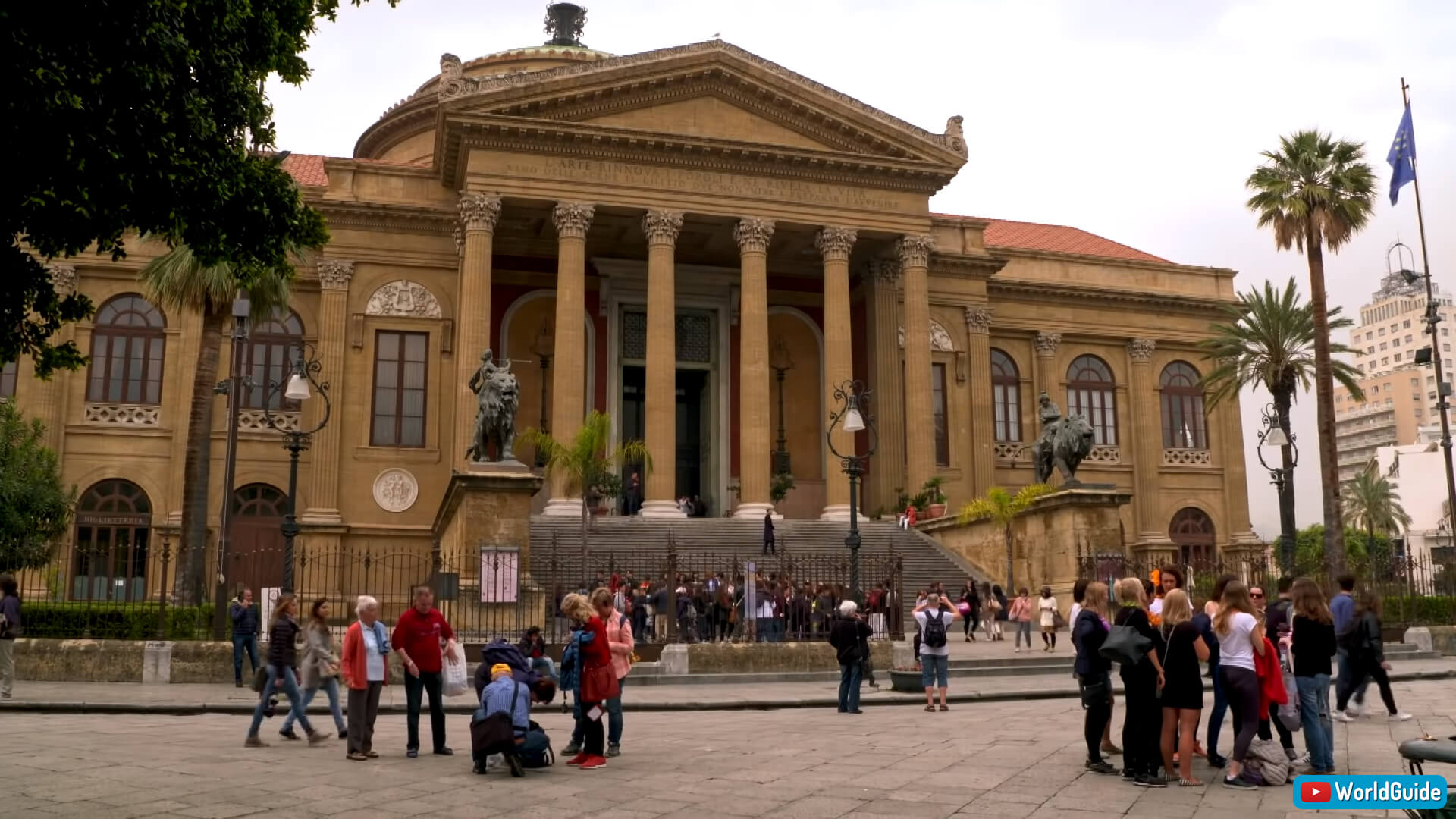Explore Amazing Sicily Island
Explore Sicily Island the cities Palermo, Catania, Mount Etna, The Temple of Concordia, Taormina and Villa Romana del Casale, Noto Cathedral Sicily, Mosaics... Learn how long does it take Sicily tour.
Political Map of Sicily

Sicily History
The earliest archaeological evidence of human activity on the island dates from as early as 12,000 BC. By around 750 BC, Sicily had three Phoenician and a dozen Greek colonies and it was later the site of the Sicilian Wars and the Punic Wars. After the fall of the Roman Empire in the 5th century AD, Sicily was ruled during the Early Middle Ages by the Vandals, the Ostrogoths, the Byzantine Empire, and the Emirate of Sicily.Physical Map of Sicily

How long does it take to tour Sicily?

What is the best time of year to go to Sicily?

Palermo


Palermo Opera House
Catania

Castello Ursino in Catania, Sicily
Attractions in Sicily
Along with summiting an active volcano in Sicily - Italy

Etna Mount Sicily Map

Places in Sicily to Visit
Greco-Roman theatre at Taormina

Syracuse view from the seafront of Ortigia, to the Maniace Castle.

2.500 Years Greek Theater, Taormina, Sicily

Ancient Women Olympic Games, Sicily

Things to do in Sicily
Provinces of Sicily Map

Palermo Theather Massimo

Sicily Church Mosaics

Sicily Church Mosaics Jesus

What to See in Sicily
Sicily Church

Where to Visit in Sicily
Roman Mosaics in Sicily - Italy

Noto Cathedral Sicily

Agrigento, Sicily
Agrigento is a city on the southern coast of Sicily, Italy and capital of the province of Agrigento. It was one of the leading cities of Magna Graecia during the golden age of Ancient Greece with population estimates in the range of 200,000 to 800,000 before 406 BC.
The Temple of Concordia, Sicily

Sicily Eglise

Villa Romana del Casale

The Corridor of the Great Hunt

A View from Toarmina, Sicily

Copyright GuideofTheWorld.Net 2006 - 2025. All rights reserved. Privacy Policy | Disclaimer
